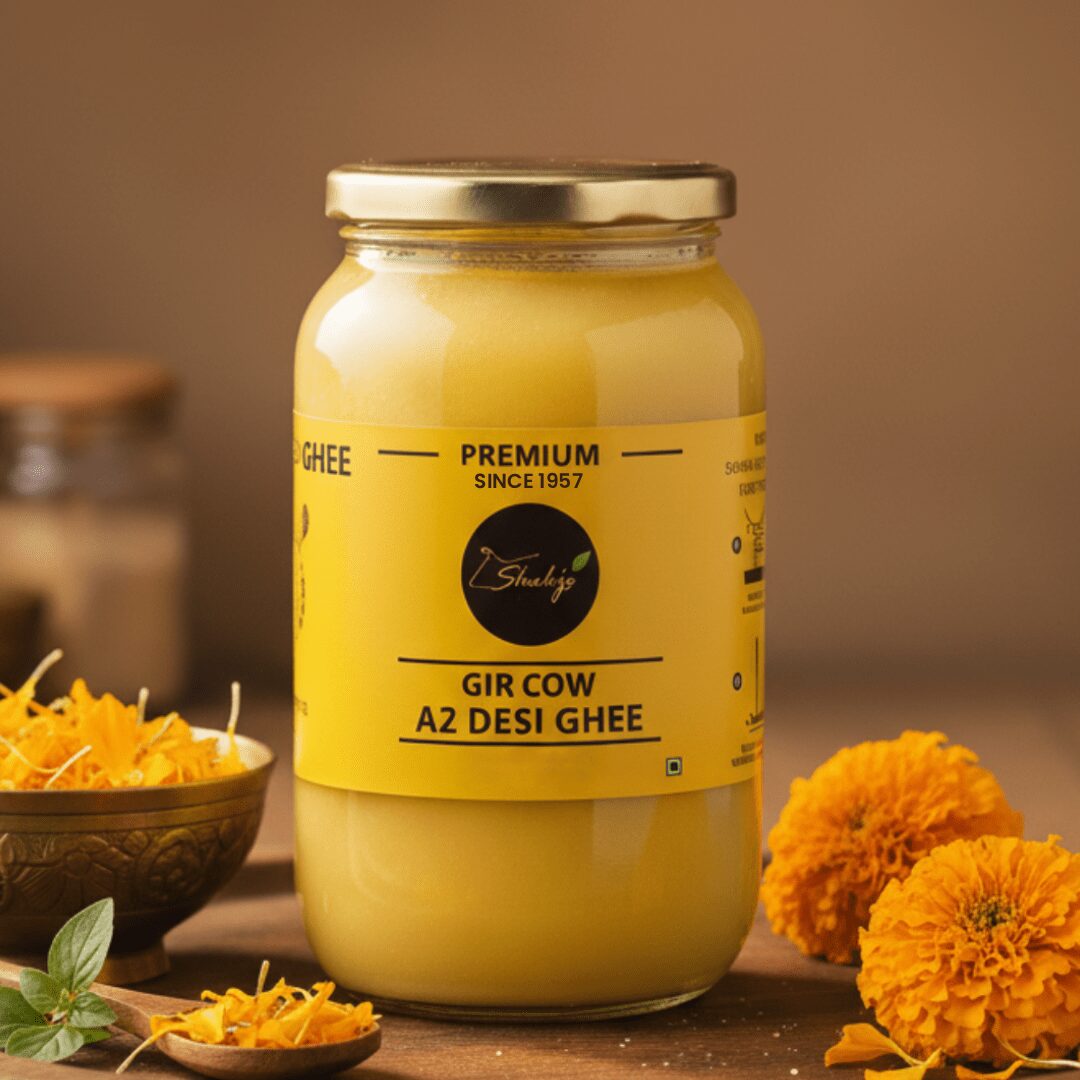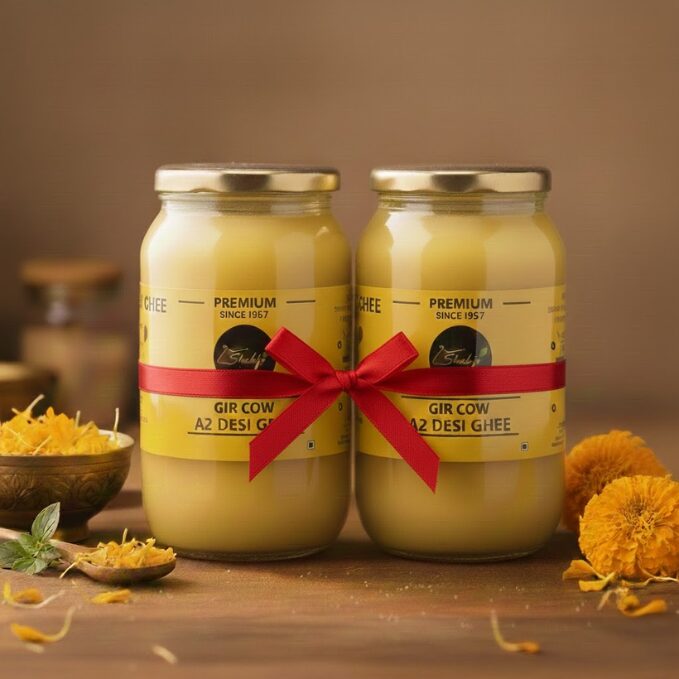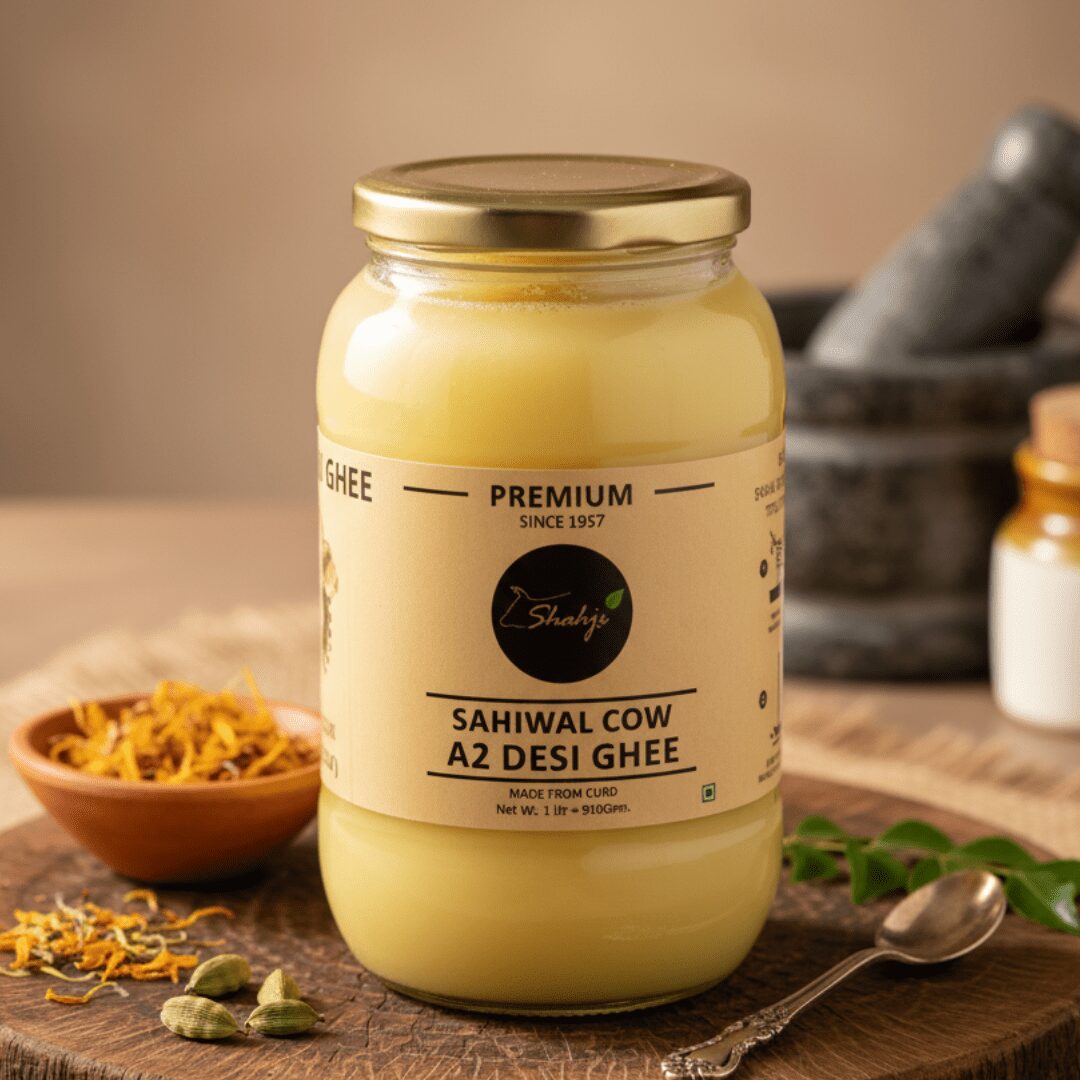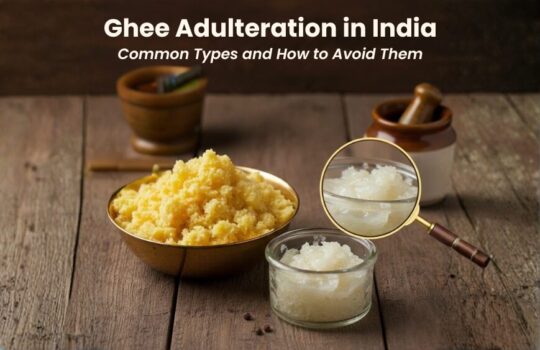Adulteration in Ghee: How to Detect and Ensure Purity
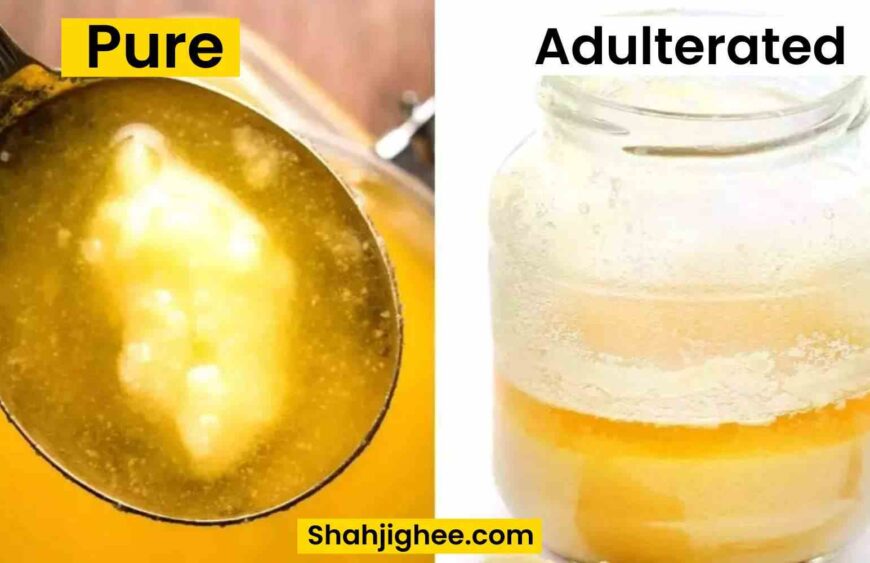
Ghee, a traditional staple in Indian households, is cherished for its rich flavor, nutritional value, and culinary versatility. However, the rising demand for ghee, combined with its high market price—nearly three times that of edible vegetable oils and fats—has led to widespread adulteration practices. This compromises both the quality and safety of the product. Let’s explore ghee adulteration in detail and how to identify pure ghee effectively.
What is Adulteration in Ghee?
Adulteration in ghee refers to the process of adding cheaper or lower-quality substances to increase its volume or reduce production costs. Common adulterants include:
- Vegetable oils fats: Coconut oil, groundnut oil, vanaspati, and hydrogenated oils are often mixed into ghee.
- Animal body fat: Tallow or melted butter can be added to mimic the texture of ghee.
These adulterants compromise the taste, nutritional value, and overall quality of ghee and can even pose health risks.
Why is Ghee Adulterated?
The primary motive for adulterating ghee is financial gain. By increasing production and reducing costs, traders can sell adulterated ghee at a higher profit margin. The limited supply of ghee and its high demand make it an easy target for such unethical practices.
Common Adulterants in Ghee
- Vegetable oils/fats
- Melted butter
- Vanaspati
- Hydrogenated oil
- Animal fats (e.g., tallow)
These substances affect the ghee’s nutritional content, flavor, and texture.
How to Check Ghee for Adulteration?
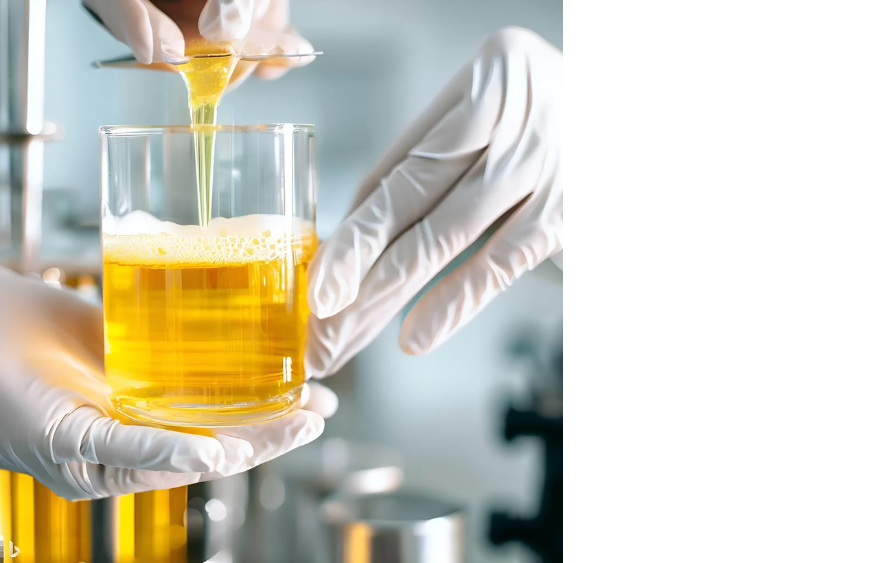
Laboratory Tests for Ghee Adulteration
While laboratory tests are the most accurate methods to detect ghee adulteration, they require professional equipment and expertise. Here are some of the standard tests:
- Fatty Acid Analysis: Identifies non-dairy fats present in the ghee.
- Rancimat Test: Detects rancid or degraded oils in ghee.
- Gas Chromatography: Separates and identifies components such as fatty acids and glycerol.
- Refractive Index Test: Compares the refractive index of ghee to that of pure ghee. Adulterated ghee usually has a lower refractive index.
Home Tests for Ghee Adulteration
If laboratory testing isn’t an option, try these simple at-home methods:
- Smell and Taste: Pure ghee has a rich, nutty aroma and distinctive flavor. Adulterated ghee may have a rancid or off smell and taste unusual.
- Appearance: Pure ghee is clear and yellowish, while adulterated ghee may appear cloudy or have a greenish tint.
- Melting Point: Place a small amount of ghee in a spoon and observe its melting behavior. Pure ghee melts at a higher temperature than adulterated ghee.
- Boudouin Test: Add a small amount of iodine solution to ghee. Pure ghee turns blue-black, while adulterated ghee turns brown or yellow.
Chemical Tests for Ghee Adulteration
- Acid Value Test: Measures free fatty acids to detect oils or fats.
- Saponification Value Test: Indicates the presence of added fats by measuring soap production.
- Iodine Value Test: Reveals non-dairy fats based on iodine absorption.
- Melting Point Test: Confirms adulteration by comparing melting points.
These tests should be interpreted by qualified analysts for accurate results.
Why is Ensuring Ghee Purity Crucial?
- Nutritional Benefits: Pure ghee is rich in fat-soluble vitamins (A, D, E, K) and butyrate, which promotes gut health. Adulterated ghee lacks these benefits and may contain harmful substances.
- Health Risks: Adulterated ghee introduces trans fats, artificial colors, and preservatives, which can increase cholesterol levels, trigger allergies, and cause other health issues.
- Cooking Efficiency: Pure ghee has a high smoke point, making it ideal for high-temperature cooking. Adulterated ghee may break down into harmful free radicals when heated.
How Shahji Ghee Ensures Purity
Shahji Ghee has been providing 100% pure, traditional bilona method desi ghee since 1957. Our products include:
- A2 Sahiwal Cow Ghee
- A2 Gir Cow Ghee
By choosing Shahji Ghee, you can trust the authenticity and quality of the product.
Also Read;
Frequently Asked Questions – FAQs
Why is it crucial to ensure the purity of ghee in your diet?
Ensuring the purity of ghee in your diet is crucial for several compelling reasons, each impacting your health and overall well-being.
Firstly, pure ghee is rich in essential nutrients such as vitamins A, D, E, and K. These vitamins are fat-soluble and require a healthy fat source like ghee for absorption. Consuming pure ghee ensures you receive these vital nutrients without the risk of ingesting harmful additives or preservatives often found in impure or adulterated products.
Secondly, pure ghee offers numerous health benefits that are compromised when impurities are present. It contains butyrate, a short-chain fatty acid known to support gut health by reducing inflammation and promoting digestion. Impure ghee may lack these beneficial compounds or contain contaminants that could negate its positive effects.
Moreover, pure ghee has a high smoke point, making it ideal for cooking at high temperatures without breaking down into harmful free radicals. Adulterated versions might not withstand heat as effectively, potentially releasing toxic substances during cooking.
From a flavor perspective, pure ghee provides an authentic taste that enhances dishes significantly more than its impure counterparts. The rich aroma and nutty flavor of genuine ghee can transform culinary experiences while ensuring you’re consuming a wholesome product.
Lastly, considering dietary restrictions or allergies is important; impurities might introduce unwanted allergens into your diet. By choosing pure ghee from reputable sources with transparent production processes, you safeguard against potential health risks associated with contamination.
In conclusion, prioritizing the purity of ghee in your diet ensures you reap maximum nutritional benefits while avoiding adverse effects from impurities. It’s an investment in both your health and culinary enjoyment—one that’s well worth making for anyone seeking to maintain a balanced and nutritious diet.
Did you know that adulterated ghee can impact your health negatively?
adulterated ghee can indeed have negative impacts on your health. Ghee, a staple in many cuisines, is prized for its rich flavor and health benefits when pure. However, when adulterated, it can pose significant health risks.
Adulteration often involves mixing ghee with cheaper oils or fats that may not be suitable for consumption. These additives can introduce harmful trans fats into your diet, which are linked to increased cholesterol levels and a higher risk of heart disease. Moreover, some adulterants might include artificial colors or preservatives that could trigger allergies or other adverse reactions.
Consuming impure ghee also means missing out on the genuine nutritional benefits of pure ghee, such as its healthy fatty acids and vitamins A, D, E, and K. These nutrients are crucial for maintaining good health by supporting immune function and promoting skin and eye health.
To safeguard your well-being, it’s essential to purchase ghee from reputable sources that guarantee purity. Look for certifications or quality seals that indicate thorough testing for authenticity. Alternatively, consider making ghee at home using high-quality butter to ensure it’s free from harmful additives.
In summary, while pure ghee can be a beneficial addition to your diet in moderation, adulterated versions compromise both its quality and safety. Being vigilant about the source of your ghee is key to enjoying its benefits without risking your health.
Conclusion
Adulteration in ghee is a significant issue that compromises its quality and health benefits. By using simple home tests or laboratory methods, you can identify adulterated ghee. For guaranteed purity, trust Shahji Ghee’s traditional bilona method desi ghee—a testament to quality since 1957. Prioritize your health and bring home the authentic taste of mother’s hand-made ghee with Shahji Ghee.
A2 Gir Cow Ghee
1 LTR
Best Price: ₹2125 with Coupons

A2 Gir Cow Ghee 2 Litre Combo Pack
Best Price: ₹4125 with Coupons
A2 Sahiwal Cow Ghee
1 LTR
Best Price: ₹1619 with Coupons


